Table of Contents
Come join us now, and enjoy playing your beloved music and browse through great scores of every level and styles!
Can’t find the songbook you’re looking for? Please, email us at: sheetmusiclibrarypdf@gmail.com We’d like to help you!
Sorabji: In the Hothouse (from Two Piano Pieces) sheet music, Noten, partitura, spartiti 楽譜

Best Sheet Music download from our Library.
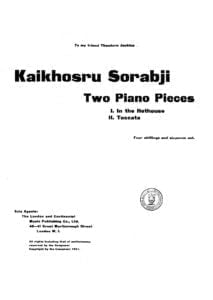
Please, subscribe to our Library.
If you are already a subscriber, please, check our NEW SCORES’ page every month for new sheet music. THANK YOU!
Browse in the Library:
Or browse in the categories menus & download the Library Catalog PDF:
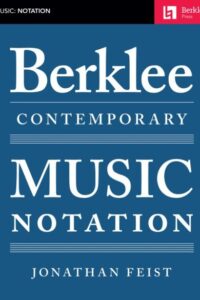
Who was Sorabji?
Kaikhosru Shapurji Sorabji: The Hermit of Modernist Maximalism
In the often-crowded pantheon of 20th-century composers, Kaikhosru Shapurji Sorabji (1892-1988) occupies a unique and enigmatic niche. A composer of staggering ambition, labyrinthine complexity, and self-imposed isolation, Sorabji crafted some of the most monumental, technically demanding, and stylistically idiosyncratic music ever conceived. His work, largely ignored during his lifetime and still challenging audiences today, represents a singular path through modernism – one defined by maximalism, intricate ornamentation, transcendental virtuosity, and a fierce, almost hermetic, independence.
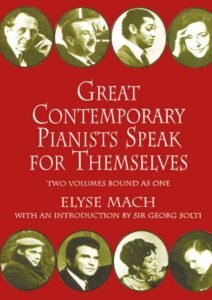
Biography: A Self-Forged Identity
- Birth & Heritage: Born Leon Dudley Sorabji on August 14, 1892, in Chingford, Essex, England. His father was a Parsi engineer from India (thus the Persian-derived name Sorabji), and his mother was English-Spanish. This mixed heritage profoundly shaped his sense of identity, though he felt alienated from both cultures.
- The Name: Around 1914, he legally changed his name to Kaikhosru Shapurji Sorabji. “Kaikhosru” and “Shapurji” were Persian names chosen for their resonance and connection to ancient Persian history and Zoroastrianism, reflecting his deliberate construction of a unique persona.
- Musical Formation: Largely self-taught. He received some piano lessons in his youth but had no formal composition training. His musical education came through voracious listening, score study (especially Bach, Liszt, Busoni, Debussy, Ravel, Scriabin, Szymanowski, Medtner), and wide reading in literature, philosophy, and the occult.
- Early Career & Criticism: Worked as a music critic (under the pseudonym “S. Godfrey”) for outlets like The New Age and The New English Weekly from the 1910s to the 1930s. His critiques were famously acerbic, insightful, and often scathing, particularly targeting English musical provincialism and composers he deemed mediocre (which was most of them).
- The Recluse: Deeply disillusioned by the musical establishment and critical reception to his early performances (which were rare and often controversial), Sorabji gradually withdrew from public musical life starting in the late 1930s. After his mother’s death in 1940, he retreated almost completely to his secluded home “The Eye” in Corfe Castle, Dorset, where he lived with his companion, Reginald Norman Best, until his death. He forbade performances of his music for decades.
- The Ban Lifted: In 1976, pressured by a growing underground interest spearheaded by pianists like Yonty Solomon and Alistair Hinton (who later became his literary executor), Sorabji reluctantly lifted the ban on performances, provided he approved the performer.
- Death: Sorabji died on October 15, 1988, in Winfrith Newburgh, Dorset, leaving behind a colossal legacy of unpublished manuscripts.
Works: Monuments of Sound

Sorabji’s output is vast and overwhelmingly dominated by solo piano music, though he also composed orchestral works, chamber music, organ symphonies, and songs. His works are renowned for their extreme length, density, and technical difficulty, pushing the boundaries of playability.
- Key Masterpieces:
- Opus Clavicembalisticum (1930): His most famous (or infamous) work. A colossal 4+ hour piano epic in 12 movements (including fugues, passacaglias, toccatas, cadenzas), often considered one of the most challenging solo piano works ever written. A summit of contrapuntal complexity and virtuosic display.
- Symphonic Variations for Piano (1935-37): Another monumental work, exploring vast variation forms over an extended duration.
- Sequentia Cyclica super “Dies iræ” ex Missa pro Defunctis (1948-49): A massive cycle of 27 variations on the “Dies Irae” chant, demonstrating his intricate contrapuntal and transformative skills.
- 100 Transcendental Studies (1940-44): True to their name, these studies explore extreme technical and expressive demands far beyond those of Liszt or Chopin.
- Symphonies for Solo Piano: Several exist, including his Symphony No. 2 (“Jāmī”), blending orchestral textures and scope onto the piano.
- Gulistān – Nocturne for Piano (1940): A prime example of his lush, perfumed, and incredibly intricate “Persian”-inspired style.
- Concerti: He wrote several for solo piano and orchestra (e.g., Concerto per suonare da me solo e senza orchestra, per divertirsi), which are symphonic in scale and require superhuman virtuosity.
- Symphonies for Organ: Vast, complex works exploring the sonic possibilities of the instrument.
Analysis of Style: A Universe of Complexity
Sorabji’s style is instantly recognizable yet difficult to categorize. It synthesizes diverse elements into a unique and overwhelming whole:
- Maximalism: This is the defining characteristic. Sorabji embraced extremes:
- Length: Works lasting several hours are common.
- Density: Highly polyphonic textures, often with multiple independent melodic lines woven together in complex counterpoint (influenced by Bach, Busoni).
- Virtuosity: Demands transcendental technique – cascades of notes, complex polyrhythms, wide leaps, immense power, and extreme delicacy. He wrote as if the pianist had four hands.
- Ornamentation: Baroque-like ornamentation (trills, mordents, turns, grace notes) is ubiquitous, often layered and integral to the texture, creating shimmering, kaleidoscopic surfaces (influenced by Scriabin, Szymanowski, Middle Eastern/Persian music).
- Dynamic Range: From barely audible whispers to thunderous, percussive climaxes.
- Harmony: A complex fusion:
- Rooted in late-Romantic chromaticism (Scriabin, Szymanowski, early Schoenberg).
- Freely employed dissonance, clusters, and intricate chord structures.
- Often retained a sense of tonal centers or polarity, even amidst dense chromaticism (unlike strict atonality).
- Incorporated modal inflections, sometimes evoking Persian or Spanish flavors.
- Rhythm: Highly complex and fluid:
- Frequent use of polyrhythms (multiple simultaneous rhythms), cross-rhythms, and nested tuplets (triplets within quintuplets, etc.).
- Tempo often fluctuates wildly, requiring immense control.
- A sense of improvisatory freedom within highly structured forms.
- Form: Often large-scale, complex, and idiosyncratic:
- Favored variations (passacaglias, chaconnes), fugues, toccatas, and intricate multi-movement structures (like the Opus Clavicembalisticum).
- Forms were often expansive and cumulative, building through layered repetition and intensification rather than traditional development.
- Architecture was paramount, even in the densest textures.
- Influences (Assimilated, Not Imitated):
- Ferruccio Busoni: The most profound influence. Busoni’s ideas of “Young Classicism,” the transcendental potential of the piano, the fusion of Bachian counterpoint with modern harmony, and the concept of “Junge Klassizität” resonated deeply. Sorabji dedicated his Opus Clavicembalisticum to Busoni’s memory.
- Franz Liszt: Virtuosity, thematic transformation, large-scale forms, and the symphonic poem concept translated to piano.
- J.S. Bach: Contrapuntal mastery, structural rigor, and the use of forms like fugue and passacaglia.
- Alexander Scriabin: Mysticism, harmonic language, dense textures, and ecstatic climaxes.
- Karol Szymanowski: Sensuous harmony, intricate ornamentation (especially in the “Persian” inspired works like Métopes and Masques), and voluptuous textures.
- Debussy & Ravel: Color, texture, exoticism, and pianistic refinement.
- Mediterranean & Persian Cultures: While not authentically recreating these styles, he evoked their essence through ornamentation, melodic turns, and titles (Gulistān, Jāmī), reflecting his fascination with his Persian heritage and the wider Orient.
- Aesthetic: Sorabji’s music aimed for:
- Transcendence: Pushing beyond perceived limits of instrument, performer, and listener.
- Luxuriance & Opulence: A rich, sensual, almost decadent sound world.
- Intellectual Rigor: Underlying the sensual surface was meticulous structural planning.
- Individualism: A complete rejection of prevailing trends (serialism, neoclassicism, minimalism) in favor of his own uncompromising vision.
Legacy: From Obscurity to Cult Status
Sorabji’s legacy is complex and evolving:
- Decades of Neglect: His self-imposed exile and performance ban meant his music was virtually unknown outside a tiny circle for nearly 40 years. Manuscripts were inaccessible, unplayable, and unpublished.
- The Pioneers (1970s-): The lifting of the ban sparked interest. Pianists like Yonty Solomon, Michael Habermann, Geoffrey Douglas Madge (who made the first complete recording of Opus Clavicembalisticum in 1977), and later Marc-André Hamelin, Jonathan Powell, Fredrik Ullén, and Ronald Stevenson began the monumental task of learning, performing, and recording his works. This required immense dedication and technical prowess.
- Publication & Scholarship: The Sorabji Archive, established by Alistair Hinton (Sorabji’s literary executor), has been crucial in cataloging, editing, and facilitating the publication of scores (primarily by Dover Publications and The Sorabji Music Archive). Scholarly work is gradually increasing.
- Recordings Renaissance: The CD era and digital distribution (YouTube, streaming) have been transformative. Dedicated labels (Altarus, BIS, Toccata Classics, Piano Classics) have released numerous recordings, making this once-inaccessible music available globally. Complete cycles of the 100 Studies and other major works are underway.
- The Cult & The Challenge: Sorabji remains a “composer’s composer” and a cult figure. His music is not mainstream concert fare due to its extreme demands and duration. However, it commands deep respect and fascination among pianists, composers, and listeners drawn to its unique sound world and uncompromising vision. He is seen as the ultimate iconoclast, forging a path utterly independent of 20th-century musical fashions.
- Influence: His direct influence on other composers is hard to pinpoint due to his obscurity, but he stands as a powerful symbol of uncompromising artistic integrity and the exploration of extreme complexity and virtuosity. Composers interested in maximalism, intricate counterpoint, or pushing pianistic limits inevitably encounter his shadow.
- Copyright Controversy: The complex copyright status of his works (involving the Sorabji Archive and publishers) has sometimes been a point of friction within the community of performers and scholars seeking access.
Sorabji: The Solitary Giant
Kaikhosru Shapurji Sorabji was a true original. He inhabited a musical universe entirely of his own making, synthesizing diverse influences into a style characterized by unparalleled complexity, sensuous opulence, and transcendental ambition. His deliberate withdrawal from the world ensured decades of obscurity, but the dedication of pioneering performers and the power of recording technology have brought his extraordinary soundscapes to light. While his music remains challenging and demanding, it offers unparalleled rewards: a journey into a world of labyrinthine beauty, overwhelming power, and intellectual fascination. Sorabji stands as a testament to the power of an utterly individual artistic vision, uncompromising in its scope and ambition, a solitary giant whose monumental creations continue to challenge and inspire. He redefined the possible for the piano and left a legacy that continues to unfold as more performers dare to scale his musical Himalayas.
“In the Hothouse” is one of Sorabji’s most evocative and frequently performed works, serving as a perfect entry point into his dense, sensuous sound world. Here’s a detailed look at this fascinating piece:
Context: Two Piano Pieces (1918)
- Composed: 1918 (early in Sorabji’s career, age 26).
- Publication: First published in 1920, making it one of the earliest Sorabji works available in print.
- The Pair: “In the Hothouse” is paired with “Toccata” – a contrasting, hyper-virtuosic, and structurally complex piece showing his Busoni/Liszt influences. “In the Hothouse” offers the sensual, atmospheric counterpoint.
- Significance: Represents Sorabji’s early mastery of texture, harmony, and evocative atmosphere. It predates his gargantuan works but already displays his unique voice.
“In the Hothouse”: A Sensory Immersion
- Title & Imagery: The title instantly conjures an environment: humid, lush, teeming with exotic, overripe plant life, heavy perfumes, and stifling, enclosed heat. Sorabji translates this sensory overload into sound.
- Form & Structure: Relatively free and rhapsodic. It unfolds as a continuous, organic stream of consciousness rather than adhering to strict classical forms. Think of it as an elaborate, decadent arabesque.
- Style & Character:
- Extreme Sensuality: This is the defining feature. The music drips with lush, complex harmonies and suffocatingly rich textures.
- Harmony: Deeply chromatic, rooted in late Scriabin and early Szymanowski. Expect dense, constantly shifting chords: augmented harmonies, whole-tone inflections, unresolved dissonances creating tension, and sudden moments of surprising consonance like shafts of light piercing foliage. It avoids traditional tonality but gravitates around implied centers.
- Texture: Thick, layered, and constantly in motion. Tremolos, trills, rapid filigree (ornamental passages), and cascading arpeggios create a shimmering, humid haze. Melodies are often embedded within this dense undergrowth rather than standing clearly apart. The writing often requires the pianist to sustain multiple layers simultaneously.
- Rhythm: Fluid and flexible, often obscured by the sheer density of notes and ornamentation. Rubato (expressive tempo fluctuations) is essential. While less overtly complex polyrhythmically than his later works, the rhythmic flow feels organic and improvisatory.
- Dynamics & Articulation: Wide dynamic range, often shifting suddenly between extremes (e.g., thunderous climaxes collapsing into fragile whispers). Articulation varies from sharp staccatos to legatissimo passages that blur together. Pedaling is crucial for sustaining the harmonic haze and creating resonance.
- Ornamentation: Quintessential early Sorabji. Trills, mordents, turns, and grace notes are not mere decoration; they are the texture, creating constant flickering movement and contributing to the claustrophobic, teeming atmosphere. This foreshadows the intricate ornamentation dominating his mature style.
- Emotional Landscape: Evokes opulence, decadence, languor, mystery, stifling heat, hidden dangers, and overwhelming sensory stimulation. There’s a sense of beauty bordering on the grotesque due to its sheer intensity.
Influences Audible in “In the Hothouse”
- Scriabin (Primary): The harmonic language (mystic chords, unresolved dissonance, ecstatic climaxes), the sensual atmosphere, and the use of trills/tremolos are deeply indebted to Scriabin’s late sonatas and poems (e.g., Vers la flamme). Sorabji pushes Scriabin’s decadence further.
- Szymanowski: The opulent textures, perfumed harmonies, and “orientalist” exoticism (though abstracted here) strongly recall Szymanowski’s “Métopes” or “Masques,” which Sorabji admired deeply.
- Debussy: The focus on atmosphere, texture, and harmonic color (whole-tone scales, parallel chords) shows Debussy’s influence, though rendered with far greater density and intensity.
- Ravel: The virtuosic filigree and lush harmonies (think “Gaspard de la Nuit,” especially “Ondine” or “Le gibet”) are a touchstone, again amplified.
- Liszt: The rhapsodic freedom and dramatic gestures hint at Liszt, though filtered through a post-Scriabinesque lens.
Performance Challenges
- Texture & Balance: Maintaining clarity amidst the dense, rapidly shifting textures is paramount. The pianist must carefully voice chords and layers to prevent muddiness while sustaining the essential harmonic haze.
- Ornamentation as Texture: Executing the constant ornamentation smoothly and evenly, integrating it into the melodic and harmonic flow rather than treating it as mere decoration.
- Dynamic Control: Navigating the extreme dynamic contrasts and sudden shifts without sounding jarring. Creating a true pianissimo shimmer within complexity is incredibly difficult.
- Rubato & Phrasing: Applying expressive tempo fluctuations naturally while maintaining the overall structural coherence and forward momentum of the rhapsodic form.
- Pedaling: Using the pedal to create resonance and blend without causing harmonic blurring or loss of rhythmic definition. Requires exceptional sensitivity.
- Stamina & Focus: While shorter than his later works (typically 12-15 minutes), the piece demands intense concentration and physical control to sustain the atmosphere and navigate the technical intricacies.
Legacy & Significance of “In the Hothouse”
- Accessibility: It remains one of Sorabji’s most “accessible” works due to its evocative title, relatively shorter duration, and concentrated expression. It’s a frequent choice for pianists introducing audiences to Sorabji.
- Blueprint: It serves as a crucial blueprint for Sorabji’s mature style, showcasing his core preoccupations: sensuality, harmonic density, intricate ornamentation as texture, and atmospheric evocation, all present in embryonic form.
- Performance History: Despite Sorabji’s later ban, “In the Hothouse” (along with the Toccata) was one of the few pieces occasionally performed during his lifetime (e.g., by Sorabji himself and pianist Reginald Paul) and became a key work for the pioneering generation post-1976 (Yonty Solomon, Michael Habermann, Marc-André Hamelin, Jonathan Powell, Fredrik Ullén).
- Gateway Piece: It functions as a vital “gateway drug” into Sorabji’s world. Its success in conveying its intense atmosphere often encourages listeners to explore his more monumental, complex works.
- Standalone Masterpiece: Regardless of its role as an introduction, it stands as a perfectly formed and powerful piece of early modernist piano writing, a miniature tone poem of extraordinary evocative power.
“In the Hothouse” is a sun-drenched, overripe, and intoxicating immersion into Sorabji’s unique aesthetic. It captures the essence of his sensual maximalism in a concentrated dose, showcasing his debt to Scriabin and Szymanowski while asserting his own distinct voice. Its evocative power, technical brilliance, and relative brevity ensure its enduring place as one of his most beloved and frequently performed works, offering a compelling glimpse into the hothouse of Sorabji’s extraordinary musical imagination.
| Artist or Composer / Score name | Cover | List of Contents |
|---|---|---|
| John Williams – Jurassic Park Main Theme |
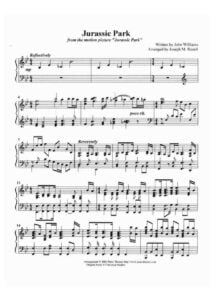 |
|
| John Williams – Jurassic Park Main Theme (Piano Solo) (Musescore File).mscz | ||
| John Williams – Piano Anthology |
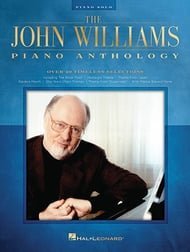 |
John Williams – Piano Anthology |
| John Williams – Prelude to a Song (Guitar arr. sheet music with TABs) | John Williams – Prelude to a Song (Guitar arr. sheet music with TABs) | |
| John Williams – Raiders of the Lost Ark (Piano solos) |
 |
John Williams – Raiders of the Lost Ark (Piano solos) |
| John Williams – Saving Private Ryan – Piano Solo |
 |
John Williams – Saving Private Ryan – Piano Solo |
| John Williams – Schindler’s List (Guitar Sheet Music & Tabs) |
 |
John Williams – Schindler’s List (Sheet Music & Tabs) |
| John Williams – Schindler’s List (Main Theme) Easy Piano Solo arr. | John Williams – Schindler’s List (Main Theme) Easy Piano Solo arr. | |
| John Williams – Schindler’s List (Main Theme) Easy Piano Solo Arr. (Musescore File).mscz | ||
| John Williams – Solo A Star Wars Story Songbook Music From The Motion Picture Soundtrack |
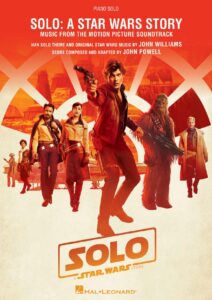 |
John Williams – Solo A Star Wars Story Songbook Music From The Motion Picture Soundtrack |
| John Williams – Star Wars Suite for Orchestra (full score) |
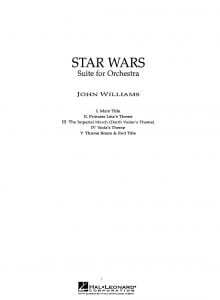 |
|
| John Williams – Star Wars Trilogy (Piano ) |
 |
Star Wars |
| John Williams – The Asteroid Field (“Star Wars Episode V – The Empire strikes back | Asteroid Field John Williams | |
| John Williams – Theme From Schindler’s List |
 |
Schindler’s List Theme |
| John Williams – Theme From Schindler’s List (Musescore File).mscz | ||
| John Williams – Theme From Schindlers List Guitar |
 |
|
| John Williams AMISTAD |
 |
John Williams AMISTAD |
| John Williams Ducans Toy Store from Home Alone 2 Lost In New York |
 |
|
| John Williams For Beginning Piano Solo |
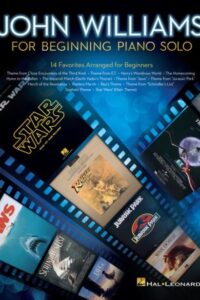 |
John Williams For Beginning Piano Solo |
| John Williams For Fingerstyle Guitar with Tablature Book + MP3 Audio Play Along (embedded) by Ben Woolman |
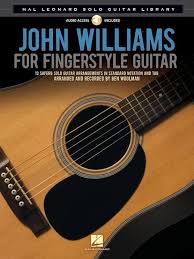 |
John Williams For Fingerstyle Guitar with Tablature Book + MP3 Audio Play Along (embedded) by Ben Woolman |
| John Williams Greatest Hits Piano (1969-1999) |
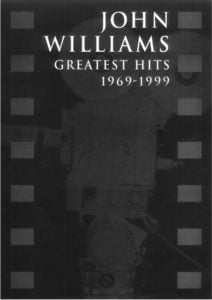 |
John Williams Greatest Hits Piano (1969-1999) |
| John Williams Harry Potter – Hedwig’s Theme Easy Piano Solo | John Williams Harry Potter – Hedwig’s Theme Easy Piano Solo | |
| John Williams Harry Potter Hedwig’s Theme Advanced Virtuosic Piano Solo Arr. By Jarrod Radnich | John Williams Harry Potter Hedwig’s Theme Advanced Piano Solo Arr. By Jarrod Radnich | |
| John Williams Indiana Jones and the Temple of Doom |
 |
John Williams Indiana Jones and the Temple of Doom |
| John Williams Jazz Autographs From The Terminal OST Piano Solo |
 |
|
| John Williams Jurassic Park Main Theme (Piano Solo arr.) | Jurassic-Park-Main-Theme-John-Williams | |
| John Williams Jurassic Park Main Theme Piano Solo |
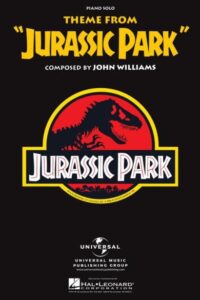 |
|
| John Williams Jurassic Park Theme Easy Piano Arr. |
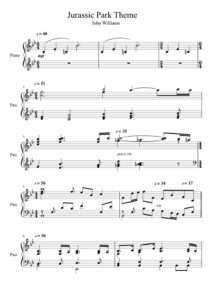 |
|
| John Williams Lincoln Songbook Music From The Motion Picture Soundtrack |
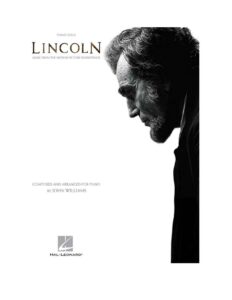 |
John Williams Lincoln Songbook Music From The Motion Picture Soundtrack |
| John Williams Memoirs of a Geisha (piano book) |
 |
John Williams Memoirs of a geisha (book) |
| John Williams Merry Christmas, Merry Christmas – from Home Alone 2 Lost In New York |
 |
|
| John Williams Star Wars Episode I – The Phantom Menace Main Theme Piano | John Williams Star Wars The Phantom Menace Flag Parade | |
| John Williams Star Wars Episode III – Revenge Of The Sith |
 |
|
| John Williams Star Wars For Beginning Piano Solo (John Williams) |
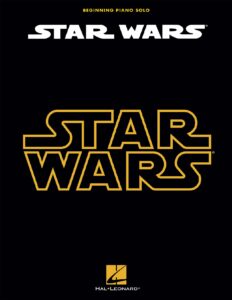 |
John Williams Star Wars For Beginning Piano Solo (John Williams) |
| John Williams Star Wars Symphonic Suite Piano Reduction |
 |
John Williams Star Wars Symphonic Suite Piano Reduction |
| John Williams Star Wars The Empire Strikes Back – Han Solo and the Princess | John Williams Star Wars The Empire Strikes Back – Han Solo and the Princess | |
| John Williams Star Wars The Phantom Menace Flag Parade | John Williams Star Wars Episode I – The Phantom Menace Main Theme Piano | |
| John Williams Superman Theme Sheet Music piano solo Arr. John Brimhall |
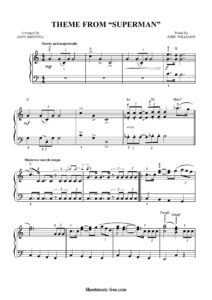 |
|
| John Williams Versus Hans Zimmer Piano Duet |
 |
|
| John Williams Viktor’s Tale Piano Solo |
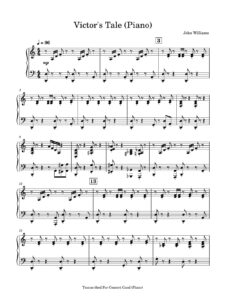 |
|
| John Williams’s Film Music Jaws, Star Wars, Raiders of the Lost – Classical Hollywood Music Style |
 |
John Williamss Film Music Book |
| Johnny Cash Memorial Songbook |
 |
Johnny Cash Memorial Songbook |
| Johnny Cash – The Essential (Guitar) |
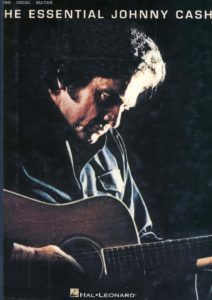 |
Johnny Cash – The Essential (Guitar) |
| Johnny Cash – The Streets Of Laredo – American Cowboy Song |
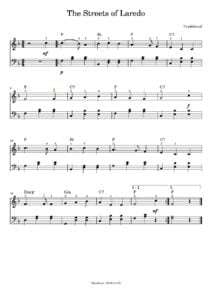 |
|
| Johnny Cash American III Solitary Man Piano Vocal Guitar Songbook |
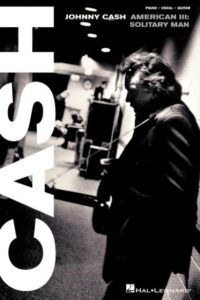 |
Johnny Cash American III Solitary Man Piano Vocal Guitar Songbook |
| Johnny Cash Anthology (Songbook ) |
 |
Johnny Cash Anthology (Songbook ) |
| Johnny Cash Best Of Johnny Cash Guitar recorded versions with Tablature |
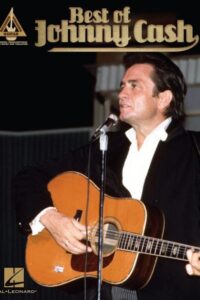 |
Johnny Cash Best Of Johnny Cash Guitar recorded versions wth Tablature |
| Johnny Cash Collection Sheet Music |
 |
Johnny Cash Collection Sheet Music |
| Johnny Cash For Fingerpicking Guitar with Tablature By Fred Sokolow The Music Of |
 |
Johnny Cash For Fingerpicking Guitar By Fred Sokolow The Music Of |
| Johnny Cash Guitar Chord Songbook |
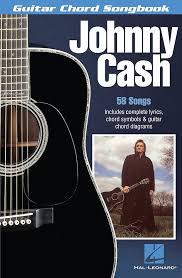 |
Johnny Cash Guitar Chord Songbook |
| Johnny Cash The Best Of Johnny Cash 2nd Edition Easy Guitar TAB |
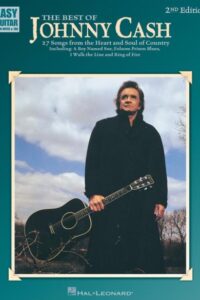 |
Johnny Cash The Very Best Of Johnny Cash Guitar And Lyrics |
| Johnny Cash The Hits Easy Piano |
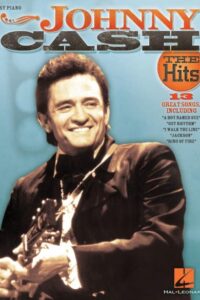 |
Johnny Cash The Hits Easy Piano |
| Johnny Cash The Very Best Of Johnny Cash Guitar And Lyrics Strump it |
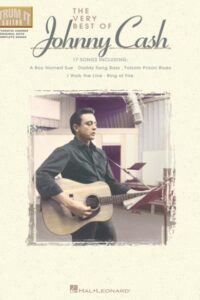 |
Johnny Cash The Very Best Of Johnny Cash Guitar And Lyrics |
| Johnny Flynn The Water | Johnny Flynn The Water | |
| Johnny Green Body And Soul Theme |
 |
|
| Johnny guitar (Peggy Lee) | ||
| Johnny Mandel The shadow of your smile |
 |
|
| Johnny Smith Guitar Interpretations |
 |
Johnny Smith Guitar Interpretations |
| Johnny Winter Guitar Tab Book Best Of |
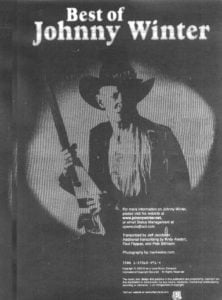 |
Johnny Winter Guitar Tab Book Best Of |
| Joji Glimpse Of Us |
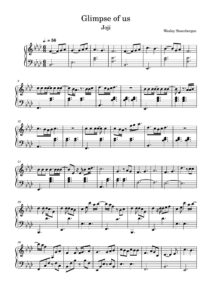 |
|
| Jon Bon Jovi – It’s my life – |
 |
|
| Jon Bon Jovi – Livin’ on a Prayer |
 |
|
| Jon Lord – Aria from Sarabande |
 |
|
| Jon Schmidt – Piano Solos Vol. I |
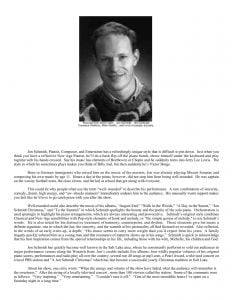 |
Sheet music |
| Jon Schmidt – Piano Solos Vol. II |
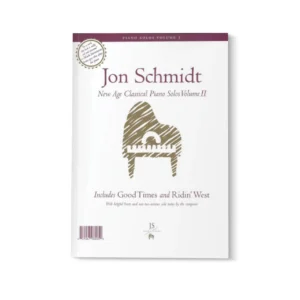 |
The Piano Guys Jon Schmidt Piano Solos II |
| Jon Schmidt – Piano Solos Vol. III |
 |
Piano Guys Jon Schmidt Piano Solos III contents — The Piano Guys Jon Schmidt Piano Solos III |
| Jon Schmidt All of me | Jon Schmidt All of me | |
| Jon Schmidt Cant Help Falling In Love |
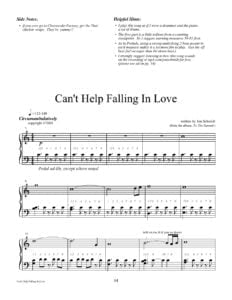 |
|
| Jon Schmidt Christmas Book sheet music pdf |
 |
Jon Schmidt Christmas Book sheet music pdf |
| Jon Schmidt New Age Classical Piano Solos Vol 2 |
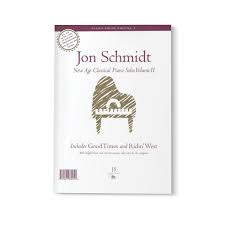 |
Jon Schmidt New Age Classical Piano Solos Vol 2 |
| Jon Schmidt New Age Classical Piano Solos Vol 3 |
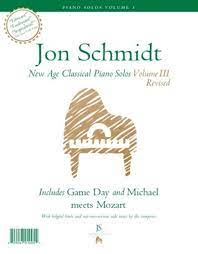 |
Jon Schmidt New Age Classical Piano Solos Vol 3 |
| Jon Schmidt Rock Meets Rachmaninoff |
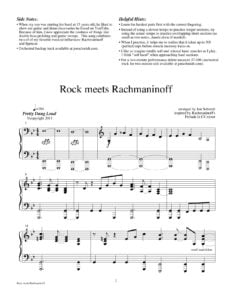 |
|
| Jonas Brothers – Sucker Sheet Music – sheet music |
 |
|
| Jonas Brothers Happiness Begins Piano Vocal guitar songbook |
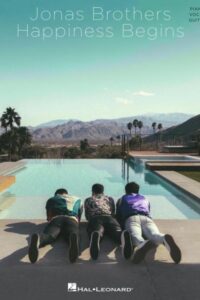 |
Jonas Brothers Happiness Begins Piano Vocal guitar songbook |
| Jonathan Huber Great is Thy Faithfullness Traditional Hymn |
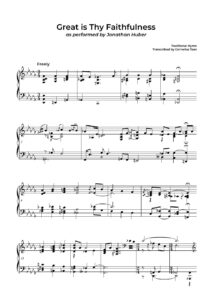 |
|
| Joni – The Creative odyssey of Joni Mitchell by Katherine Monk (Book) |
 |
|
| Joni Michell – Big Yellow Taxi | ||
| Joni Mitchell Collection |
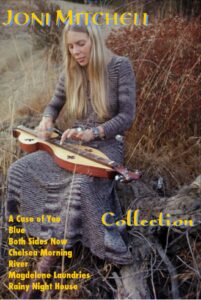 |
Joni Mitchell Collection |
| Joni Mitchell Complete Songbook Vol 1 1966 1970 (Piano vocal and guitar chords) |
 |
Joni Mitchell songbook |
| Joni Mitchell Complete Songbook Vol 2 (Piano Vocal And Guitar Chords) |
 |
Janis Joplin – A Collection of 16 Janis Joplin Classics Piano Vocal Guitar Chords |
| Jonny Lang – Wander This World Authentic Guitar Tab Authentic ediiton |
 |
Jonny Lang – Wander This World Authentic Guitar Tab Authentic ediiton |
| Jonny May Baby Im A Wishin Intermediate advanced piano | Jonny May Baby Im A Wishin Intermediate dvanced piano | |
| Jonny May Handy St. Louis Blues as arranged by Jonny May (Piano Solo) | Jonny May Handy St. Louis Blues as arranged by Jonny May (Piano Solo) | |
| Joplin Scott – The Entertainer |
 |
|
| Joplin – Elite Syncopations | Joplin Elite Syncopations | |
| Joplin – Maple Leaf Rag 1899 | Joplin Maple Leaf Rag | |
| Joplin – March Majestic | Joplin – March Majestic | |
| Joplin – Pleasant Moments | Joplin – Pleasant Moments | |
| Joplin – School of Ragtime | Joplin – School of Ragtime | |
| Joplin – Solace | Joplin-Solace 1st page | |
| Joplin – The Easy Winners | Joplin easy winners ragtime | |
| Joplin – The Entertainer 1902 (Theme from the film The Sting) |
 |
|
| Joplin Complete Piano Rags Book (Incl School Of Ragtime) – Sheet Music – Piano – Book |
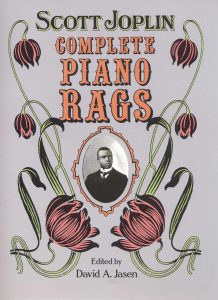 |
Joplin complete |
| Joplin, Scott – The best of |
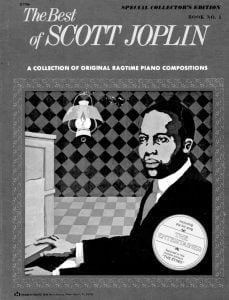 |
Scott Joplin |
| Joplin, Scott Great Crush Collision March |
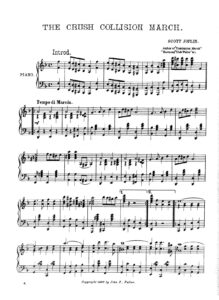 |
|
| Jordan Hill – Remember Me This Way | ||
| Jordan Rudess Arpeggio Man Etude |
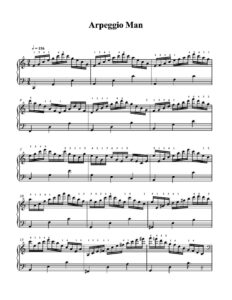 |
|
| Jordin Sparks – No Air | ||
| Jordin Sparks – One Step At A Time | ||
| Jordon He And Twoset Violin – Prelude (Arr. Luca Savo) |
 |
|
| Jorge Morel Tangos And Milongas For Solo Guitar |
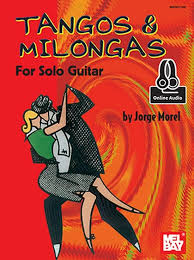 |
Morel, Jorge – Tangos And Milongas For Solo Guitar |
| Jorge Morel Virtuoso South American Guitar Vol. 2 |
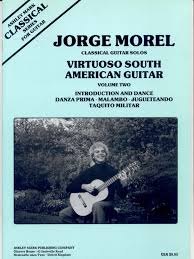 |
Jorge Morel Virtuoso South American Guitar Vol. 2 |
| Jorge Morel Virtuoso South American Guitar Vol. 5 |
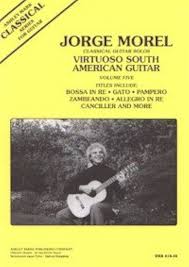 |
Jorge Morel Virtuoso South American Guitar Vol. 5 |
| Jose Feliciano Affirmation |
 |
|
| José González Stay Alive By Ryan Adams And Theodore Shapiro Piano Vocal Guitar |
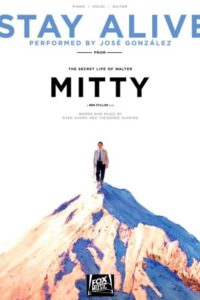 |
|
| José Mario Cano – Hijo De La Luna | ||
| Joseph Forestier 12 Duets |
 |
|
| Joseph Kosma – Autumn Leaves (Les feuilles mortes) Easy Piano Solo Jazz Standard |
 |
|
| Joseph Lamb American Beauty Rag | Joseph Lamb American Beauty Rag | |
| Joseph Lamb Bohemia Rag |
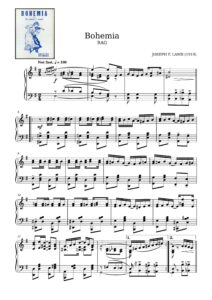 |
|
| Joseph Lamb Cottontail Rag |
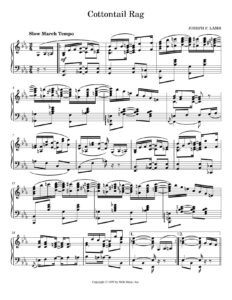 |
|
| Joseph Lamb Ragtime Nightingale |
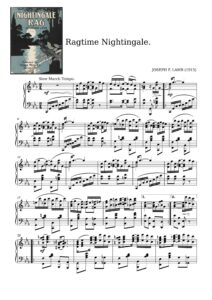 |
|
| Joseph Wihtol Deux préludes et étude pour piano |
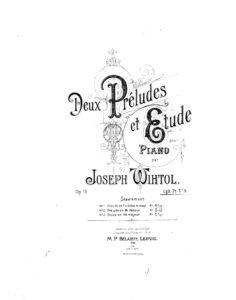 |
|
| Joseph Wihtol Op.6 Variations Sur Un Theme Lette |
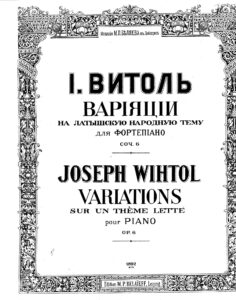 |
|
| Josh Groban – The Mystery Of Your Gift |
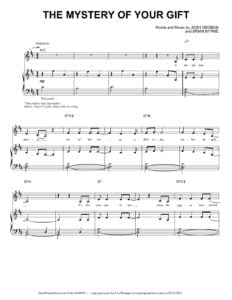 |
|
| Josh Groban – Awake (sheet music book ) |
 |
Josh Groban – Awake BOOK |
| Josh Groban – Broken Vow | ||
| Josh Groban – Hymne A L’Amour | Josh Groban Hymne à ‘LAmour | |
| Josh Groban – Noel Thankful | ||
| Josh Groban – Remember When It Rained | ||
| Josh Groban – You Are Loved (Don’t Give Up) Sheet Music |
 |
|
| Josh Groban – Youre Still You | ||
| Josh Groban Biran Byrne – The Mystery Of Your Gift Piano Vocal Guitar Chords |
 |
|
| Josh Groban Broken Vow | Josh Groban Broken Vow | |
| Josh Groban Canto Alla Vita by Dettori, Galibatu and Rapetti | Josh Groban Canto Alla Vita by Dettori, Galibatu and Rapetti | |
| Josh Groban Closer Piano Vocal Guitar Chords |
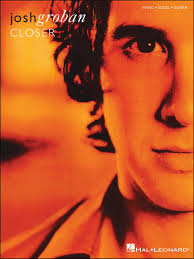 |
Josh Groban Closer Piano Vocal Guitar Chords |
| Josh Groban Illuminations Songbook Piano Vocal Guitar Chords |
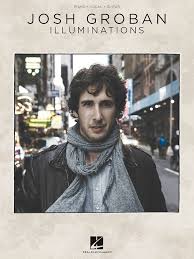 |
Josh Groban Illuminations Songbook Piano Vocal Guitar Chords |
| Josh Groban Let Me Fall from Cirque du Soleil Piano Solo |
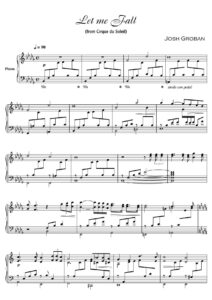 |
|
| Josh Groban Noël songbook Piano Vocal Guitar Chords |
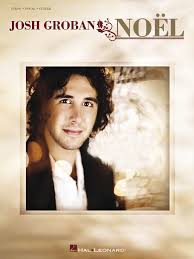 |
Josh Groban Noël songbook Piano Vocal Guitar Chords |
| Josh Groban Oceano by Leo Z Andrea Sandri | Josh Groban Oceano by Leo Z Andrea Sandri | |
| Josh Groban Original Keys For Singers Songbook (Vocal and Piano) |
 |
Josh Groban Original Keys For Singers Songbook |
| Josh Groban Panis Angelicus by Cesar Frank | Josh Groban Panis Angelicus by Cesar Frank | |
| Josh Groban Remember When It Rained | Josh Groban Remember When It Rained | |
| Josh Groban The Impossible Dream from the Musical Man of La Mancha Joe Darion Mitch Leigh | Josh Groban The Impossible Dream from the Musical Man of La Mancha Joe Darion Mitch Leigh | |
| Josh Groban The Prayer Carle Bayer Sager David Foster Tony Renis Alberto Testa | Josh Groban The Prayer Carle Bayer Sager David Foster Tony Renis Alberto Testa | |
| Josh Groban To Where You Are by Richard Marx and Linda Thompson Piano Vocal Guitar |
 |
Josh Groban To Where You Are by Richard Marx and Linda Thompson Piano Vocal Guitar |
| Josh Groban You Raise Me Up (Piano Vocal Chords) |
 |
|
| Joshua Redman Songbook Guitar Solos |
 |
Joshua Redman Songbook Guitar Solos |
| Journey – Dont Stop Believin | ||
| Journey – Faithfully | ||
| Journey – Open Arms | ||
| Journey Complete Songbook |
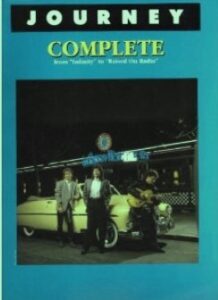 |
Journey Complete Songbook |
| Journey Faithfully (Piano Solo) | Journey Faithfully (Piano Solo) | |
| Journey Faithfully (Piano Solo) (Musescore file).mscz | Musescore File | |
| Journey Greatest Hits Book (piano & Guitar) |
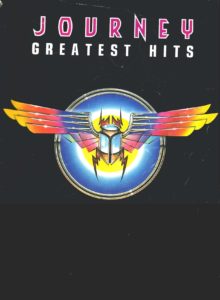 |
Journey Greatest Hits Book (piano & guitar |
| Joy Enriquez – How Can I Not Love You | ||
| Joy To The World – Handel (Musescore File).mscz | ||
| Js Bach – Air On The G String Jazz Play Along Vol 1 (Musescore File).mscz | ||
| Juan Tizol Perdido Jazz Standard arr. Carsten Gerlitz |
 |
|
| Judas Priest – Vintage Hits (Guitar Tab Songbook) |
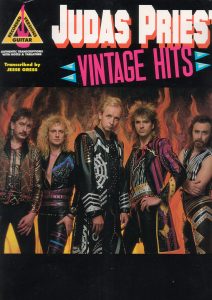 |
 |
